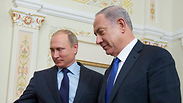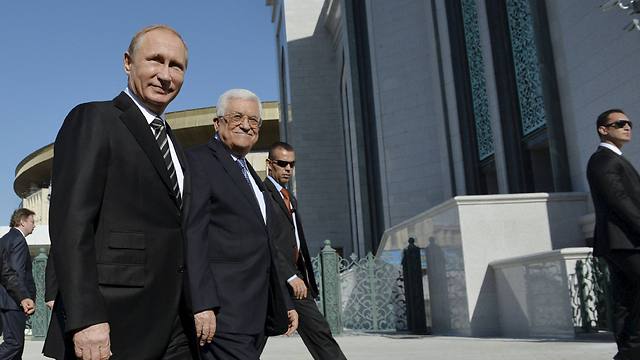

Israel 'studying' Russian statement on Jerusalem recognition
Breaking with a longstanding policy of viewing Tel Aviv as Israel's capital, Moscow issues surprise statement recognizing west and east Jerusalem as respective Israeli and future Palestinian capitals: Israel endeavors to make sense of the U-turn, suspecting Kremlin’s desire to gain a foothold in planned US peace initiatives.
Russia's Foreign Ministry said Thursday it reaffirms "the status of east Jerusalem as the capital of the future Palestinian state...we regard west Jerusalem as the capital of the state of Israel."
Hitherto, recognizing Tel Aviv as the capital of Israel has always been a cornerstone of the Kremlin's Middle East policy, according to which Jerusalem should be placed under international rule.
“Moscow is deeply concerned about the Israeli-Palestinian conflict. The sides have not conducted peace negotiations for years and the situation on the ground has deteriorated,” the statement read.
“The impasses in the peace process has set the stage for unilateral steps,” it noted, which it said “threatened the potential for an international agreement involving a two-state solution to the Palestinian problem, Israel and Palestine, so they can live side by side in peace and security as neighbors.”
It went on to reaffirm its support for a two-state solution which “provides an answer to national interests of the Palestinian and Israeli people, both of whom have friendly relations with Russia. We reaffirm and reiterate our commitment to the principles of the UN for a two-state solution to the Israeli-Palestinian conflict, which includes east Jerusalem as the capital of a future Palestinian state. And at the same time we seek to clarify that in this context, we view west Jerusalem as the capital of Israel.”
Israeli Foreign Ministry spokesman Emmanuel Nahshon said Israel is "studying" the statement, the practical implications of which are unclear.
Israel has surmised that Russia’s sudden dramatic change in position on the city is part of its effort to gain a foothold in an American-led initiative for an international regional conference ahead of the possible renewal of negotiations between Israel and the Palestinian Authority.
Indeed, in recent months several reports emerged that Moscow sought to arbitrate a meeting between Netanyahu and Abbas, an initiative which never came to fruition. While Abbas reportedly agreed to the talks, Netanyahu declined to attend.
The latest statement comes shortly after Putin reprimanded Netanyahu and told him that his accusations that Syria was responsible for the chemical weapons attack in Idlib prior to an investigation were unfounded and 'groundless.'
(Partially translated and edited by Alexander J. Apfel)

















